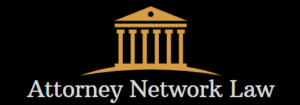If you’re a foreign national interested in applying for an eb2 visa advanced degree, it’s important to understand what the requirements are. This includes obtaining a job offer and being approved for labor certification.
Naya Immigration is here to help you navigate this process and provide professional guidance. To get started, contact us today to schedule a consultation.
Educational Requirements
The EB2 visa subcategory for advanced degrees allows professional workers with an advanced degree to obtain an employment-based green card. This type of green card requires the U.S. employer to get a PERM Labor Certification from the Department of Labor and file an I-140 Immigrant Petition on behalf of the foreign worker. EB2 visa applicants must demonstrate that the job they want to do necessitates an advanced degree (beyond a baccalaureate). A master’s degree or its foreign equivalent is required. Alternatively, a baccalaureate plus five years of progressive work experience in the field will also suffice.
The applicant’s work experience must be documented by official academic transcripts, professional licenses, letters from current and previous employers that characterize the job responsibilities, and other comparable evidence. This is in addition to satisfying the specialized knowledge requirements and meeting the other criteria of the EB2 category. For a person with exceptional ability, the Labor Certification requirement can be waived by filing for a national interest waiver along with the I-140 petition.
Job Requirements
The EB-2 visa advanced degree category is for professionals with an advanced academic degree or individuals of exceptional ability. In general, a petition under this category requires a US sponsoring employer and a PERM labor certification. However, if the applicant qualifies for a National Interest Waiver (NIW), self-sponsorship is permitted.
In order to qualify for an NIW, the petitioner must demonstrate that it is in the US public interest that they obtain permanent residency. A strong case can be made through a variety of evidence, such as:
For example, if an applicant is a physician, they may need to demonstrate that they will practice in areas where there is a shortage of specialized workers. This is done by submitting a letter from the employer along with other documentation that proves that the physician will be providing services in the national interest. A letter from a medical school indicating that the physician has been accepted for residency can also be used to establish that it is in the US public interest.
Exceptional Ability Requirements
The EB-2 visa advanced degree category is for foreign professionals who hold degrees above the baccalaureate level. This includes master’s and doctoral degrees. It also applies to foreign workers with a baccalaureate degree and five years of progressive experience in their field who meet USCIS’ definition of exceptional ability. Exceptional ability is defined as “a degree of expertise significantly above that ordinarily encountered in the sciences, arts or business.”
Petitioners seeking a green card through this category must obtain labor certification from the Department of Labor before applying for an EB-2 visa. However, if the petitioner can demonstrate that it would be in the national interest to waive the job offer requirement, it may be possible to skip this step. USCIS considers each petition on a case-by-case basis. It considers the quality and caliber of the evidence presented to make a determination on each regulatory criterion. A petitioner must provide a wide range of evidence to satisfy each of the EB-2 requirements.
Experience Requirements
The EB2 visa is a second preference employment-based green card that allows professionals who have advanced degrees and can prove exceptional ability to work in the United States. These include actors, scientists, economists, doctors, and many others who have reached the top of their fields.
In order to qualify for this visa, you must have a master’s degree or higher or the equivalent of five years of progressive post-baccalaureate work experience in your field. You can prove this with official academic records or letters from current and former employers.
In addition, you must have a job offer from a U.S. company. This is unless you qualify for a national interest waiver, which allows self-sponsorship. Finally, you must satisfy a labor certification requirement that there are no qualified American workers to fill your position. This is usually done by going through a PERM labor certification process with the Department of Labor.
